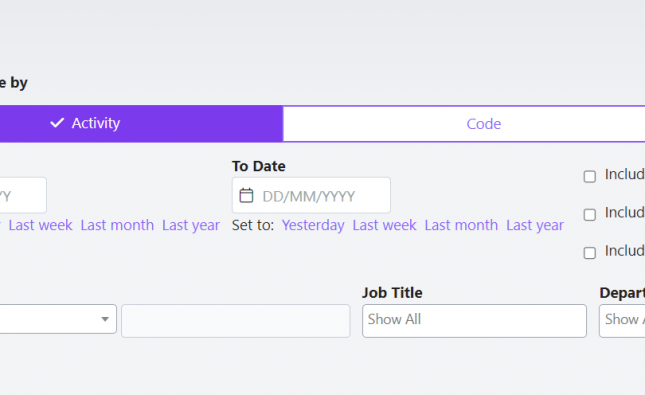As well as impacting millions of workers at the lower end of the payscale, pay increases are likely to cascade upwards with senior members of staff expecting proportionately higher pay.
These increases could see wage bills rising by upwards of 50%, adding pressure on businesses to boost productivity levels and minimise costs – in other words, achieving more with less.
Doing more with less
The concept of doing more with less is hardly revolutionary, but as wages increase, companies that focus on productivity will have a growing advantage over their competition.
So, what options are available to businesses looking to offset wage rises? Here are some suggestions:
Reduce employee turnover
The more frequently employees leave your business, the more effort you’ll need to spend on recruitment, which comes with numerous costs including advertising, time spent assessing applications, interviewing potential candidates and performing necessary administration tasks, time and money spent training new recruits, and any agency fees payable to recruiters.
In addition are the opportunity costs arising from not having fully trained staff in place to fulfil the job roles your business requires, and even once new staff are in place it will take them a while to be up to speed.
A combination of factors play their part in minimising employee turnover levels. Studies show that the newer an employee is to a business, the more likely they are to leave, so it pays to make sure you have an effective onboarding programme in place and that new hires receive all the support they need while becoming familiar with how your business works.
Reduce onboarding & training costs
To run a successful business, your staff must understand how the business works and what is expected of them, so staff training is essential, particularly when it comes to new hires.
While some areas of training are job-specific, and make sense to be carried out by the manager or peers of the new recruit, others apply to the whole business, such as training on health and safety and data protection policies.
In either case, if your business relies on face to face training then it could be missing out on opportunities to drastically reduce costs. Every time face to face training takes place – so, every time a new hire joins, or an existing member of staff needs refresher training – the trainer’s time is required, duplicating the work.
Using eLearning enables you to drastically reduce the cost of staff onboarding and refresher training, as the work of completing the course has already been completed, so training can be delivered to thousands of people consistently and immediately, with minimal work required.
Improve staff skills and productivity
Once your staff are in place and familiar with their roles, you can still boost productivity by helping them to develop in a number of key areas.
Soft skills are often mistakenly considered to be ‘nice-to-have’ or ‘fluffy’, when compared to hard expertise in the skills directly relevant to a specific job, yet poor communication and teamwork are among the chief causes of friction in the workplace.
Offering training to all staff in areas such as internal customer management and soft skills can drastically reduce the communication overhead within your business, enabling employees to communicate more effectively and freeing up more of their time to spend on productive work.
Combine this with training managers in getting the most from their teams by setting the right objectives and managing performance effectively and you’ll ensure that every employee within your business is focused on doing the work that brings in the best results.
Reduce stress levels
UK businesses lose millions of days of work every year due to stressed employees.
Stress weakens the immune system, leaving stressed employees more vulnerable to illness and increasing absenteeism, but employees who are suffering from stress are also more error-prone and less productive as a result.
Causes of stress can differ depending on the individual, and individuals are often unaware that they are suffering from stress, so ensuring organisation-wide awareness of the symptoms, causes and management of stress is the most effective way to reduce instances of stress in your business, and enjoy increased productivity and reduced absenteeism as a result.
Implement a flexible working policy
Studies have shown that flexible working can improve employee retention, engagement and productivity.
Flexible working is an attractive benefit for employees, so businesses can enjoy the benefits of attracting talented workers and keeping them happy by allowing them to balance their work and personal commitments.
Although there are a number of benefits, flexible working does pose some challenges, so it’s important to ensure it is the right fit for your business, and the employee in question – and equip managers to handle the challenges that arise from it.
Performance Management eLearning
Our Performance Management Suite contains eLearning courses to boost organisations’ performance in a number of key areas by training managers and employees.


